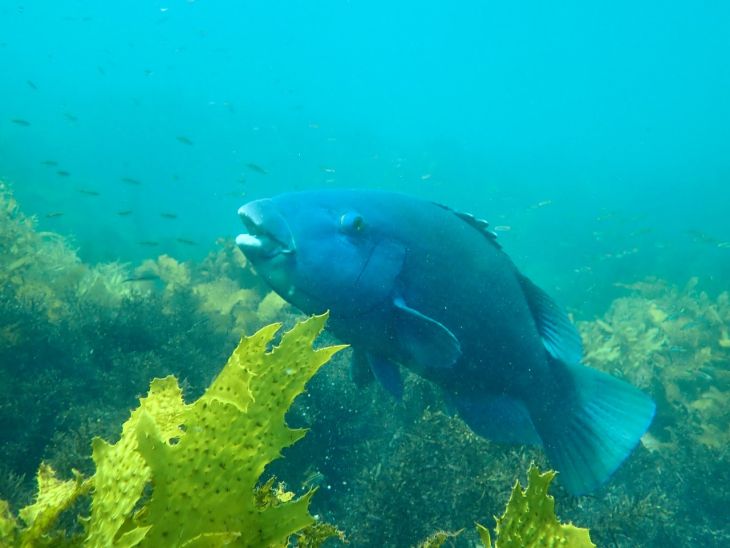
Adult Eastern Blue Groper in a kelp forest [Credit: Dione Deaker].
University of Sydney researchers spotted the juvenile blue gropers in four remnant oyster reefs in NSW, including Bermagui and Crookhaven in south NSW, and Towra Point and Port Hacking in south Sydney. Their results have been published in the journal Ecology.
However, as oyster reefs are critically endangered around NSW, this home of the blue groper is under threat prompting fears for the fish’s long-term survival. The groper is listed as ‘near threatened’ by the International Union for Conservation of Nature (IUCN) due to habitat loss and overfishing in the 1900s.
“Gropers are one of the most beloved fish species in all of Eastern Australia by fishermen, divers, and snorkelers due to their friendly nature (which also puts them at risk), and their vibrant blue and pink colours,” said lead researcher, PhD candidate Christopher Pine, from the Faculty of Science.
“Our findings show that oyster reefs are so important for this fish and other fish communities – it highlights the need to protect and restore these threatened systems.
“The loss of this species would be devastating – not just for ecosystems but for the public at large.”
Over the past 100 years, humans, along with human-induced climate change, have caused the destruction of nearly 85 percent of oyster reefs worldwide. In Australia, oyster reefs formed from two native oyster species, the Sydney Rock Oyster and the Southern Mud Oyster, are considered functionally extinct.
Oyster reefs are impacted by warming waters and ocean acidification due to climate change, along with eutrophication – a buildup of nutrients like phosphorus and nitrogen from agricultural and industrial runoff.







